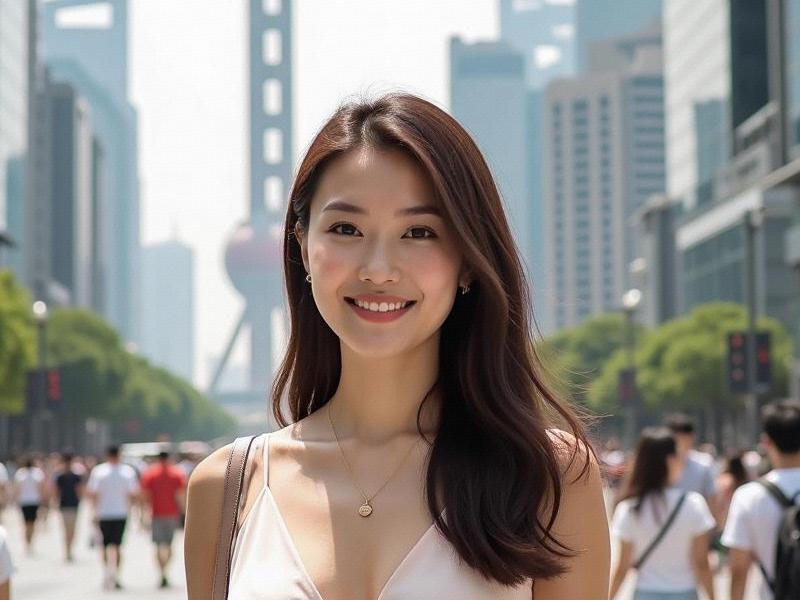This investigative report examines how Shanghai-based beauty influencers are creating a hybrid East-West aesthetic that's reshaping China's $80 billion cosmetic industry while challenging traditional gender norms.

In the neon-lit studios of Shanghai's content creation hubs, a revolution in beauty standards is being livestreamed to millions. As China's cosmetic market surpasses $80 billion in 2025, Shanghai has emerged as the undisputed capital of a new hybrid aesthetic that blends K-beauty's skincare obsession, J-beauty's minimalist philosophy, and Western contouring techniques into something distinctly Shanghainese.
The Rise of the "Hybrid Beauty" Influencers
At 26, former finance analyst turned influencer Zhang Meili (ShanghaiChic) represents this new generation. Her viral "East-West Friday" tutorials - where she demonstrates how to pair Song Dynasty-inspired eyebrow styles with bold Fenty Beauty lip colors - have garnered over 8 million followers on Douyin. "Shanghai girls don't choose between traditions," Zhang explains during a break at her Jing'an District studio. "We take the best from every culture and make it our own."
This philosophy extends beyond makeup. Shanghai's beauty mavens are pioneering what industry analysts call "contextual beauty" - looks tailored for specific scenarios. Popular tutorials include "Boardroom Bamboo" (natural looks with sharp eyeliner for professional settings) and "Jazz Age Jiangnan" (1930s-inspired looks updated with modern highlighters).
上海龙凤419官网 The Business Behind the Beauty
The economic impact is staggering. Shanghai-based beauty influencers directly drive an estimated 18% of cosmetic sales in China, according to 2025 data from market research firm Beautystreams. Local brands like Florasis and Perfect Diary now allocate over 40% of their marketing budgets to influencer collaborations, creating what industry insiders call the "Shanghai Circle" - an ecosystem where influencers, brands, and e-commerce platforms feed each other's growth.
Digital platforms have become virtual beauty counters. On Xiaohongshu (Little Red Book), Shanghai-based beauty content receives 3.2 times more engagement than the national average. The city's top 100 beauty accounts generate over 500 million yuan monthly in gross merchandise value through livestream sales.
Challenging Beauty Norms
上海私人品茶
Yet this glittering world faces scrutiny. A 2025 Shanghai Women's Federation report found that 68% of female university students feel pressured to maintain influencer-level beauty standards. In response, a counter-movement called "Bare Face Shanghai" has gained traction, with members posting unfiltered selfies at iconic locations like the Bund.
"Real beauty in Shanghai isn't about looking a certain way," argues sociologist Dr. Li Wen from Fudan University. "It's about the confidence to define beauty on your own terms - whether that means full glam or no makeup at all."
As Shanghai prepares to host the 2026 Global Beauty Summit, the world watches how this dynamic city will continue to reshape beauty ideals. One thing is certain: the Shanghai look isn't just about appearance, but the intelligent, cosmopolitan spirit of the women who crteeait.
上海娱乐 The Future of Shanghai Beauty
Industry experts predict several emerging trends:
1. "Smart Skincare" - AI-powered personalized regimens developed in Shanghai's tech labs
2. "Cultural Cosmetics" - Makeup lines inspired by Shanghainese heritage
3. "Genderless Beauty" - Products marketed beyond traditional gender binaries
As night falls over the Huangpu River, the glowing screens of thousands of smartphones continue broadcasting Shanghai's beauty revolution to the world - one perfectly blended eyeshadow look at a time.